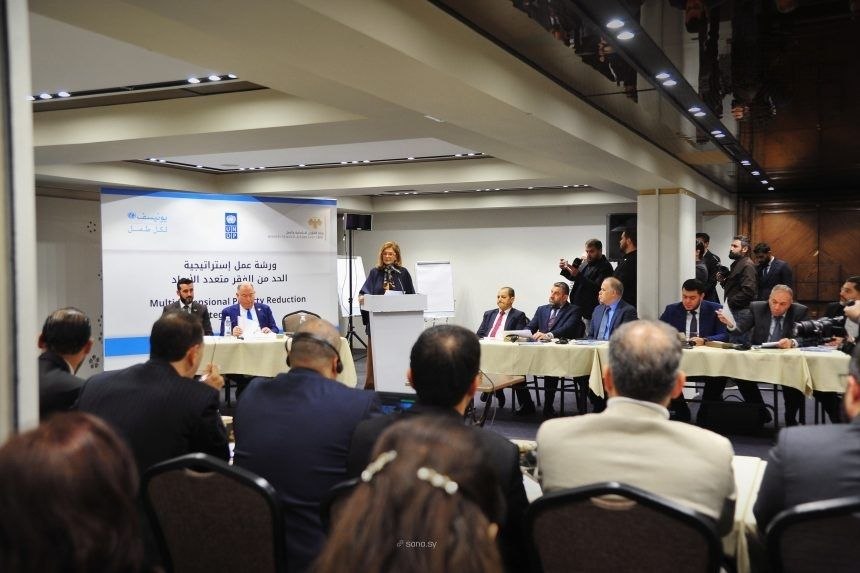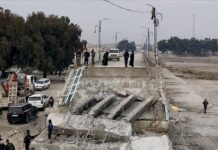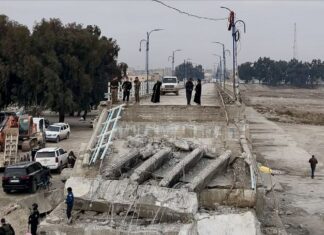 In an effort to develop more effective poverty-reduction policies, the Ministry of Social Affairs and Labor, working in cooperation with UNICEF and the United Nations Development Programme (UNDP), has launched a workshop on the Multidimensional Poverty Reduction Strategy at the Jasmine City Hotel in Damascus.
In an effort to develop more effective poverty-reduction policies, the Ministry of Social Affairs and Labor, working in cooperation with UNICEF and the United Nations Development Programme (UNDP), has launched a workshop on the Multidimensional Poverty Reduction Strategy at the Jasmine City Hotel in Damascus.
The two-day workshop introduces global methodologies and indicators used to measure multidimensional poverty, an approach that goes beyond material deprivation to include social, health, educational, and environmental dimensions. Participants reviewed international experiences, examined current Syrian policies and laws related to poverty, and engaged in discussions about the need to adopt this form of measurement in Syria, along with the practical challenges facing data collection and analysis.
National and International Partnership
In her opening remarks, Minister of Social Affairs and Labor Hind Qabawat emphasized the importance of drawing on the expertise of international organizations and civil society, as well as strengthening cooperation among governmental institutions and the private sector.
She noted that the strategy “will undergo continuous evaluation and revision to ensure it aligns with the realities and needs of the people.” Finance Minister Muhammad Barnieh described combating poverty as “a national priority,” stressing that government policy is focused on enabling families to “live with dignity.”
Priorities and Targeting
Dr. Anas Radwan, Head of the Planning and Statistics Authority, explained that the authority will work on completing data sets and conducting field surveys in order to generate accurate indicators and identify priority groups for support.
UNICEF Representative in Syria Meritxell Relaño outlined key areas of focus. These include nutrition, health, education, access to clean water, housing, protection from violence, child labor, and early marriage, alongside the development of sustainable social protection systems for children.
Community Resilience and the Displacement Crisis
UNDP Acting Resident Representative Muhammad Madawi noted that the workshop serves as “a conceptual foundation” for designing the national strategy to reduce multidimensional poverty. The Ministry is preparing to launch a national program targeting the most vulnerable groups, aiming to build a more inclusive and durable social protection system. This approach will provide direct support to families while linking them to complementary programs in employment, healthcare, and other services.
Although the official announcement addressed poverty in general terms, the strategy carries important implications for refugees and internally displaced persons (IDPs). Multidimensional poverty is both a driver and a consequence of displacement. By tackling issues such as health, education, protection, and child labor, the initiative helps create conditions that support safe and dignified returns.
Expanding social protection systems also helps communities absorb shocks, including those caused by displacement crises. When essential services like healthcare and quality education are accessible, and sustainable safety nets are in place, families are less likely to be uprooted again or forced to resort to negative coping mechanisms such as early marriage or child labor.








